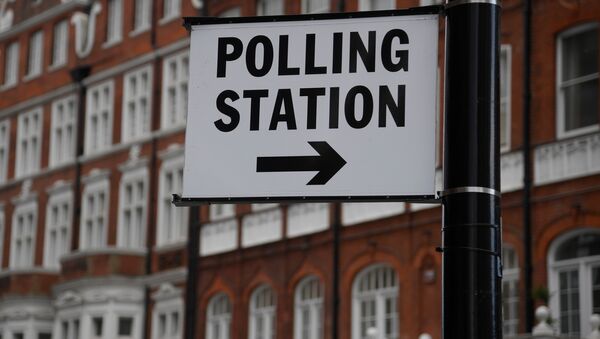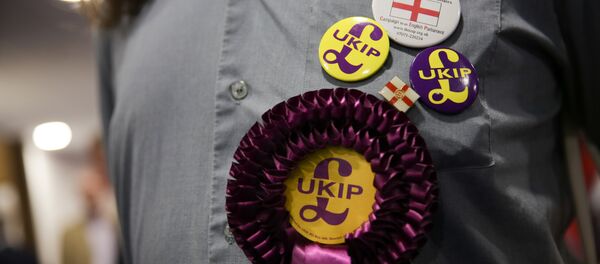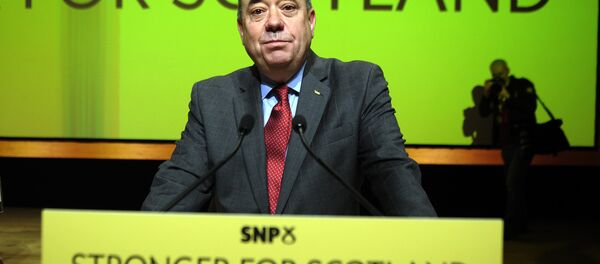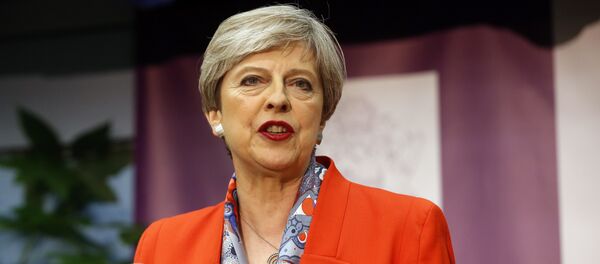Kristian Rouz – The United Kingdom Independence Party (UKIP), only recently praised as the party of new hope for the British working class due to the Labour’s outdated agenda, suffered a stunning defeat in the June 8 general election, winning zero seats in the Parliament.
With 646 out of 650 UK Parliament seats declared thus far, no party has won a majority, which, at first glance, seems as a failure for the Tories.
When calling for a snap election in April, PM May was hoping to solidify her parliamentary support, which would supposedly help her negotiate a Brexit deal with the EU in a quicker and more efficient manner. Now, since the Tories only won 315 seats, or 48.5 percent, smaller UK parties are becoming critically important in the British politics.
Yet, the UKIP did not win an invitation to participate in the Brexit process. The party has long advocated Britain’s separation from the EU from the Eurosceptic, right-wing populist, economic liberal and overall nationalist viewpoint, but when their agenda started finally turning into reality, the party has become redundant. Brexit is already here, and the UK’s separation from the EU is only a matter of time. Sadly, the UKIP lost all its support after having achieved its ultimate goal.
The British voter’s main concern now, after the Brexit question is off the table, is how soon is actual Brexit coming, on what conditions the separation from the EU would occur, or, in other words, would it be a ‘hard Brexit’ or a ‘soft Brexit’. The UKIP, unfortunately for the party itself, did not have any answers beyond those that the Tory PM May has provided during this past year since the Brexit vote.
When PM May called for a snap election in April, UKIP’s popular support, as suggested by continuous opinion polling, stood at roughly 12.5 percent of the vote. All this support has evaporated, as the British, and predominantly English, working class, was looking for solutions for the post-Brexit reality in other parties’ agenda. Slight economic deterioration, tumbling pound, rising inflation, the ongoing austerity debate, unemployment, and rising overall uncertainty surrounding the future quality of life of the Britons – the UKIP has hardly provided a compelling answer to any of these points beyond what the Tories already have to say.
Most importantly, the UK’s smaller parties have come to prominence in the hung Parliament. LibDems, once the UK’s second most important party known as the Whigs in the Gladstone-Disraeli ‘golden age’ of British politics, claimed 1.8 percent of the vote, and Ulster’s Democratic Unionist Party (DUP) took 1.5 percent of the vote, a major success that has left the entire UK questioning, ‘where are the DUP?’.
The Scottish National Party’s (SNP) support has eroded, however. Only a couple years ago being a powerful enough party to lead the Scottish independence referendum (indyref), the SNP has lost ground to Tories, just like the UKIP, but, unlike the latter, still keeping 5.4 percent of the vote.
As for the Labour Party, its rise in polls closer to election day was indeed phenomenal, but the problem is, the leftist bias in the media and entertainment industry has played its role, which does not necessarily correlate with the general public’s perception of policies necessary. From Liam Gallagher of Oasis, to Brian May of Queen, to Sleaford Mods – the voice and, more importantly, the face of the English working class – many prominent artists praised Labour ahead of the election. Labour leader Jeremy Corbyn enjoyed an overwhelming support from the grime music scene, who dubbed him as ‘Grime Minister’. However, all the grime music in the world wouldn’t pay your garden tax bill, would it?
Overall, the Tories have lost 12 seats, whilst the Labour gained 29, the SNP lost 21 seats. UKIP’s zero-seat result also shows that, whilst the party’s role in domestic politics has now dramatically diminished, their significant presence in the European Parliament, 20 out of 73 seats assigned to the UK, is no longer an asset either, as the UK is leaving the EU. The UKIP has always been struggling to represent the British working class in Europe in the first place, which, Nigel Farage felt, was treating the British workers unfair, but now the party will have to reinvent itself or vanish.
With the UKIP almost written off as redundant in the post-Brexit political reality, the LibDems and DUP will be crucial for the Tories when forming the cabinet.
“The result is good news for the UK growth outlook as it reduces the likelihood of Brexit taking place, and certainly diminishes the likelihood of a hard Brexit," Simon French of the investment bank Panmure Gordon said.
Now that PM May is lacking a unanimous support from the Parliament, the Brexit process will be much harder and lengthier for both London and Brussels.
Despite sudden Brexit-related shock are now almost completely off the table, the prolonged uncertainty will still take its toll of the UK economy, and multiple political issues will prove rather exhausting. The Conservative Party will have to manoeuvre between the various interests at home, but there is an upside for the UK’s main Brexit negotiator, PM May – during the negotiations, she will now have an opportunity to refer to the Parliament’s incoherency each time the negotiations falter.








